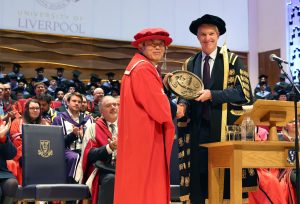Agenda
Date: 2024-09-20
Time: 2:00 PM
Location: SA 236
For online audiences: please join us with Tencent Meeting (ID:434-4785-928)
Speaker: Dr Bernat Kocsis
Topic: The effect of cannabis on oscillatory brain networks, essential for cognitive function
Details
Neuronal oscillations are essential for cognitive functions, and their disruption is linked to psychiatric disorders. Cannabis, through CB1 receptor (CB1-R) activation, significantly alters these oscillations. While historically cannabis use was associated with psychotic-like effects, emerging evidence highlights its impact on cognition. In my talk, I will review how CB1-R activation alters brain oscillations in various frequency bands—gamma, spindle, theta, and delta—during sleep and wake states. I will present findings from two recent studies from my lab. The first study shows that CB1-R activation disrupts theta and gamma activities in both wakefulness and sleep in rats, particularly affecting REM sleep and intermediate sleep phases, leading to prolonged intermediate sleep and reduced theta during REM. The second study investigates the impact of CB1-R activation on theta rhythms during different developmental stages. Rats exposed to CB1-R agonists in early adolescence showed greater reductions in theta power in adulthood, suggesting early adolescence as a critical period of vulnerability to cannabis. These findings will be discussed within the context of schizophrenia, focusing on the role of oscillatory deficits in cognitive impairments. Increased CB1-R binding in schizophrenia patients and the link between adolescent cannabis use and schizophrenia risk highlight the importance of understanding these mechanisms during key developmental periods.
Speaker
Bernat Kocsis, is an associate professor at Harvard Medical School. After graduation as an MD and a with diploma in Engineering he started his career studying animal models of stroke and the autonomic control system, focusing on brainstem networks regulating peripheral organs, cardiovascular and respiratory effectors expressing well-coordinated characteristic rhythmic activities at different frequencies. Later his interest shifted to oscillatory networks in the brain, to oscillatory coupling between cortical regions and the hippocampus and studied subcortical regulation of cortical activity and the action of neuromodulatory systems. He joined the Harvard faculty more than 25 years ago and established a laboratory in the Department of Psychiatry. He entered the field of translational research in psychiatry at a critical time when core deficits in information processing due to dysfunction of neuronal microcircuits gained primary attention in investigations of different psychiatric conditions. His lab uses the techniques of neuronal and system level neuropharmacology and electrophysiology with advanced signal analysis, in animal experiments to study the mechanisms of oscillatory neuronal synchronization in normal function and their alterations in psychiatric diseases.







